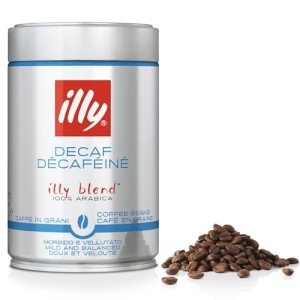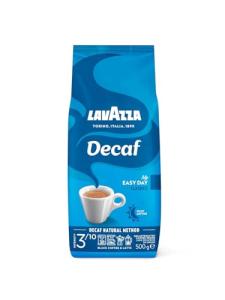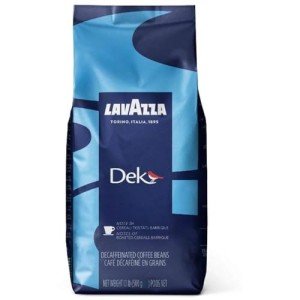In the realm of coffee, few regions command attention like Nicaragua. Famed for its rich volcanic soil and favorable climatic conditions, Nicaragua has cultivated a burgeoning reputation as a source of high-quality coffee beans, particularly its 100% Arabica variety. Among the diverse offerings from this Central American nation, decaffeinated coffee has carved a niche for itself, appealing to those who desire the nuanced flavor of coffee without the stimulating effects of caffeine. This guide delves into the unique characteristics of Nicaragua decaf coffee beans, specifically the 1 kg offerings, their production process, flavor profile, and health benefits, while answering commonly asked questions about this delightful beverage.
The Journey of Decaffeination
Decaffeination is the process of removing caffeine from raw coffee beans. The caffeine extraction process is crucial, especially for those looking to enjoy coffee without the jitteriness that often accompanies caffeine consumption. Nicaraguan decaf coffee beans are typically processed using one of two popular methods: the Swiss Water Process or the CO2 Method.
-
Swiss Water Process: This method uses water as a solvent to extract caffeine from coffee beans, while maintaining the compounds responsible for flavor. Beans are soaked in hot water, which dissolves the caffeine along with other soluble compounds. The water is then passed through a carbon filter that traps the caffeine, allowing the flavored, caffeine-free water to be reintroduced to the beans. This eco-friendly method is popular among those who prioritize organic and chemical-free processes.
-
CO2 Method: Also known as the supercritical carbon dioxide method, this process extracts caffeine using liquid CO2, which acts as a solvent. The beans are placed in a chamber, and CO2 is introduced under high pressure. The CO2 binds to caffeine molecules and effectively draws them away from the beans, leaving the flavor intact. Though more expensive than the Swiss Water Process, this method is appreciated for its efficiency and effectiveness.
Flavor Profile of Nicaraguan Decaf Coffee
One of the hallmarks of Nicaraguan coffee is its unique flavor profile, which varies based on the region of cultivation, altitude, and processing method. Nicaraguan decaf coffee beans, characterized by their 100% Arabica composition, offer a smooth, well-rounded taste that coffee enthusiasts adore. Here are some key flavor notes to expect:
-
Mild Acidity: Unlike many robust coffee varieties, Nicaraguan decaf often exhibits a mild acidity that adds a refreshing brightness to the cup without overpowering the palate.
-
Sweetness: The natural sweetness of the beans lends a pleasant balance, often highlighting caramel and chocolate notes that create a comforting drinking experience.
-
Flavor Complexity: Depending on the specific region, Nicaraguan decaf beans may showcase a variety of undertones, including floral hints, berry flavors, or spicy nuances, contributing to a full-bodied brew.
-
Smooth Finish: The finish is predominantly smooth and pleasant, making it an ideal choice for those who prefer a refined coffee experience.
Health Benefits of Decaf Coffee
While decaf coffee is enjoyed primarily for its taste, it also holds several health benefits. Some of the notable advantages include:
-
Reduced Caffeine Dependency: With lower caffeine content, drinking decaf can help individuals who are sensitive to caffeine or those looking to reduce their intake.
-
Antioxidant Properties: Coffee beans are rich in antioxidants, which can help combat oxidative stress in the body, potentially reducing the risk of chronic diseases.
-
Improved Sleep Quality: Consuming decaf, especially later in the day, does not interfere with sleep patterns compared to regular coffee, making it a suitable evening beverage.
-
Heart Health: Some studies suggest that moderate coffee consumption may have protective effects against heart disease, which extends to decaf as well.
Choosing the Right Nicaraguan Decaf Coffee
When selecting Nicaraguan decaf coffee beans, particularly in 1 kg packages, consider the following tips to ensure you choose the best quality:
-
Single-Origin vs. Blends: Opt for single-origin beans if you're looking to experience the distinct flavors linked to a specific region. Blends may offer unique combinations of flavors from different bean sources.
-
Freshness: Purchase beans with a recent roast date to guarantee maximum flavor and aroma. Freshly roasted beans tend to yield the best-tasting coffee.
-
Certification: Look for certifications like organic or fair trade, which can provide reassurance about the quality and ethical sourcing of the beans.
-
Roast Level: Pay attention to the roast level, as this affects flavor significantly. Light roasts preserve more of the original flavor of the bean, while darker roasts may introduce bolder, smoky taste elements.
-
Ground vs. Whole Beans: Whole beans are ideal for those who prefer brewing fresh coffee at home, as they retain flavor longer than pre-ground options.
Frequently Asked Questions (FAQs)
1. Is Nicaraguan decaf coffee suitable for everyone?
Yes, Nicaraguan decaf coffee is an excellent option for individuals who are sensitive to caffeine or wish to enjoy coffee at any time of the day without the risk of caffeine-related side effects.
2. What brewing methods work best for Nicaraguan decaf coffee?
Nicaraguan decaf coffee can be brewed using various methods, including drip coffee makers, pour-over, French press, and espresso machines, allowing consumers to choose their preferred style of preparation.
3. Can decaf coffee still contain caffeine?
Yes, decaf coffee beans are not entirely caffeine-free. Most decaf coffee still contains a small amount of caffeine, usually around 2-5 mg per cup, compared to regular coffee, which can have 95 mg or more.
4. How should decaf coffee beans be stored?
Decaf coffee beans should be stored in an airtight container in a cool, dark place to preserve their freshness and flavor. Avoid exposure to moisture, light, and strong odors.
5. Can I use decaf coffee for baking or cooking?
Absolutely! Nicaraguan decaf coffee can be used in various recipes for baking or cooking, providing a rich coffee flavor without the caffeine kick.
Nicaragua decaf coffee beans, particularly those that are 100% Arabica, offer a delightful blend of flavor, aroma, and health benefits, making them an appealing choice for coffee aficionados and casual drinkers alike. With their well-rounded taste and nuanced characteristics, they create an enjoyable coffee experience free from the jolting effects of caffeine. As coffee culture continues to evolve, Nicaraguan decaf coffee stands out as a shining example of quality and integrity in the world of beans, beckoning all who appreciate a good cup to indulge in its rich heritage.






